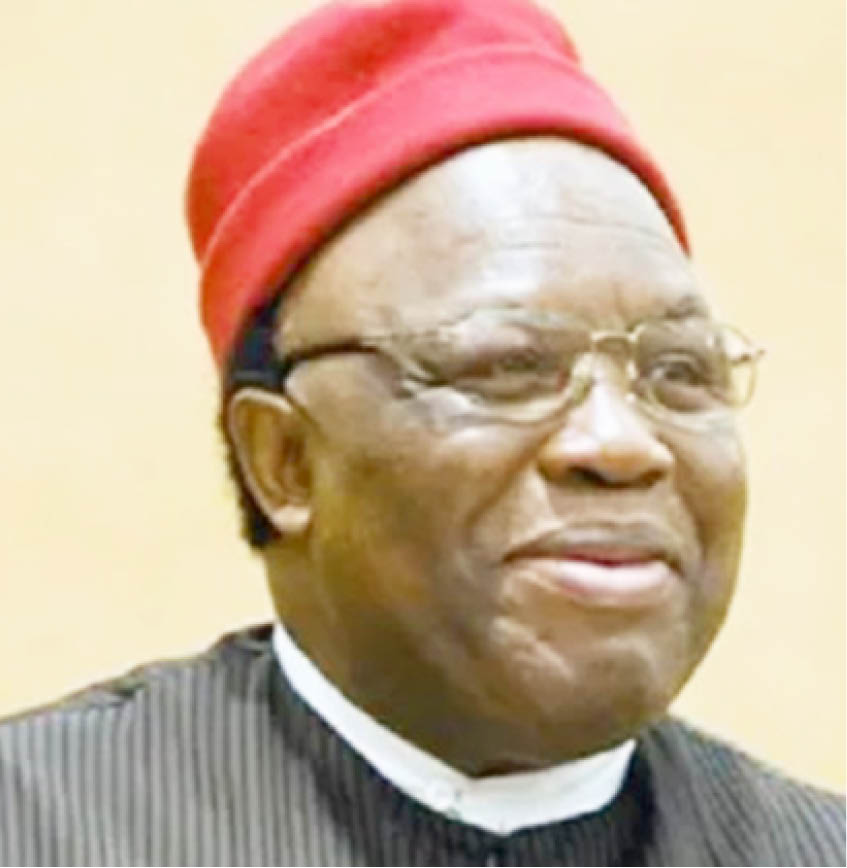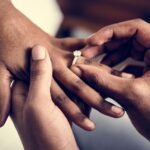Last Sunday, the Igbo apex socio-cultural organisation, Ohanaeze Ndigbo, elected an erudite international scholar and diplomat, Prof George Obiozor, as their president-general. He replaced John Nnia Nwodo.
Obiozor came into the office with a lot of credentials. As a scholar, he headed the Nigerian Institute for International Affairs (NIIA) and was later to have a distinguished career as a diplomat when he was posted to the United States of America as Nigeria’s ambassador.
- Oyo: Sunday Igboho issues quit notice to Fulani
- 2023: Igbo leaders demand presidential tickets from APC, PDP
But despite all the intimidating credentials, Obiozor came into the fray with a lot of controversies. The election, which was conducted under a charged atmosphere at the Dan Anyiam Stadium, was disputed by other four contenders – Dr Chris Asoluka, Prof. Ukachukwu Anwuka, Prof. Joe Nworgu and Prof. Chidi Osuagwu, each of them having a distinguished career in their chosen fields.
There were two indications that all would not be well with the election. The first indication was the selection of the electoral committee.
The outgoing Nnia Nwodo-led executive had constituted a 40-man electoral committee, led by Chief Enwo Igariwey, which was said to have been endorsed by the Ime-Obi, the decision-making organ of the body. The Ime Obi had met after the submission of the list by Nwodo and ratified it. But it was strongly contested by some members of the organisation, including some members of the executive and Ime Obi, who argued that the selection of the committee was not in line with their constitution.
This led to the setting up of another parallel electoral committee headed by Dr Richard Ozobu, which was inaugurated on December 31, 2020 at a meeting convened by the purported suspended secretary-general of the organisation, Uche Okwukwu.
While the Igariwey-led committee was going about organising the Owerri election, Ozobu was in Enugu organising his. He insisted that his committee was entitled to organise the election, maintaining that its set-up was in line with the constitution of the organisation.
According to him, the constitution provides that the president-general should convene a meeting through the secretary-general. He, therefore, argued that the meeting was called by the secretary-general. But the other committee was also insisting that having been suspended, Okwukwu had no locus standi to call any meeting, let alone setting up an electoral committee.
Ozobu was quoted as saying that any meeting not summoned directly by the secretary-general was inconsequential. He said that on December 31, 2020, he received a circular for the meeting in Owerri, summoned by the secretary-general. He added that at the meeting, a committee was formed for the election and he was made the chairman. He insisted that other issues were also handled at that meeting.
“We are talking about a major election, and there are provisions in the constitution on how these things should be done,” he stated.
He said the circular for the meeting that constituted the Igarewey-led committee was issued by the administrative secretary of Ohanaeze, who he said had no right to issue such a letter.
The issue of Okwukwu’s suspension also became controversial. He insisted that he was the secretary-general and, therefore, had the power to convene the meeting. He said the Article 21 of the body’s constitution stipulated that only the General Assembly could remove the secretary-general and not the Ime Obi, and that he must be replaced with somebody from his state.
Okwukwu submitted that his purported suspension failed to meet the provision of Article 21, adding, “Ask those saying I have been suspended to read out Article 21. Ask them where and when I was suspended. If they say I have been removed, did they replace me with someone from Rivers State? Was I removed by the General Assembly?”
The second contentious issue was that of consensus candidacy. The Imo Council of Elders, led by Chief Emmanuel Iwuanyanwu, had selected Obiozor as the sole candidate for the election. He led other elders to Imo Government House, where Obiozor received the endorsement of Governor Hope Uzodimma, who was able to convince others to endorse his candidacy.
The other aspirants for the position of the president-general maintained a stiff rejection of the purported adoption of Prof Obiozor as a consensus candidate.
They contended that if Obiozor was that popular, he should be allowed to slug it out with others. The battle became a game of wits between Uzodimma and his predecessor, Rochas Okorocha, who did not go with the idea of a consensus candidate.
A former secretary-general of the association, Dr Joe Nwaorgu, maintained that Article 11 (b) of their constitution stipulated that at least three persons must contest for the position of the president-general, describing the said adoption as unconstitutional.
Another aspirant, Dr Chris Asoluka, also relied on the provisions of Article 11 on the election of the president-general of the association.
He said Imo elders could choose whoever they wanted, but their choice would not in any way determine who was eligible to contest or otherwise. Thus the election was seen as dead-on-arrival, even before the slated date.
The last straw was the method of voting. Our correspondent gathered that it was agreed at the meeting of the Ime Obi that the election would be by secret balloting instead of Option A4. But at the election, Option A4 was adopted, making some delegates who had already arrived from various states to return to their hotel rooms, insisting that they would not be part of what they described as a charade.
Elvis Chukwu, the secretary-general of Izu Umunna, a Jos-based organisation and Ohanaeze affiliate, was one of those who left the venue. He told our correspondent that at no time was open balloting adopted as an option during the Ime Obi meeting.
Dr Omenazu Jackson, chairman of the Ohanaeze Council of Elders in Rivers State, said he only came to Owerri to see if the election would actually hold. He added that he was not only unhappy with the election of Obiozor, but with the whole process, beginning from the election of delegates, saying he would soon go to court to challenge the result.
Be that as it may, pundits say Obiozor has a lot to do as the new president-general of Ohanaeze, which is starting amidst controversies.
The first is how he can reconcile the way he emerged, as well as the much-touted Igbo presidency in 2023. As it is, he has to carry the burden of ensuring that this aspiration, which is dear to Ohanaeze and every Igbo man, is realised.
He is also faced with the task of bringing all the contestants together again. Also, how can he achieve unity in Igbo land so that the people would go into the battle of 2023 as a group? How can he revive Ohanaeze that is at the verge of collapse?
Jackson had wondered how the Igbo nation would pursue their 2023 ambition with one mind if the election of the president-general of its apex socio-cultural organisation generated much controversy.
He said, “How can we go into the battle of 2023 if we started like this? If we cannot handle a simple election of Ohanaeze in Igbo land, how can we handle the issue of Igbo presidency? How can we go into 2023 as a divided people and expect to win? It is not just possible.’’
Already, two presidents have emerged from the two factions of the association – Obiozor in Owerri and Chief Chidi Ibe in Enugu.
For now, it is expected that the barrage of criticisms that heralded the separate elections of Obiozor and Ibe would end in litigation. How they weather this storm will determine the success or undoing of Ohanaeze and the Igbo nation in future electoral activities.

 Join Daily Trust WhatsApp Community For Quick Access To News and Happenings Around You.
Join Daily Trust WhatsApp Community For Quick Access To News and Happenings Around You.


